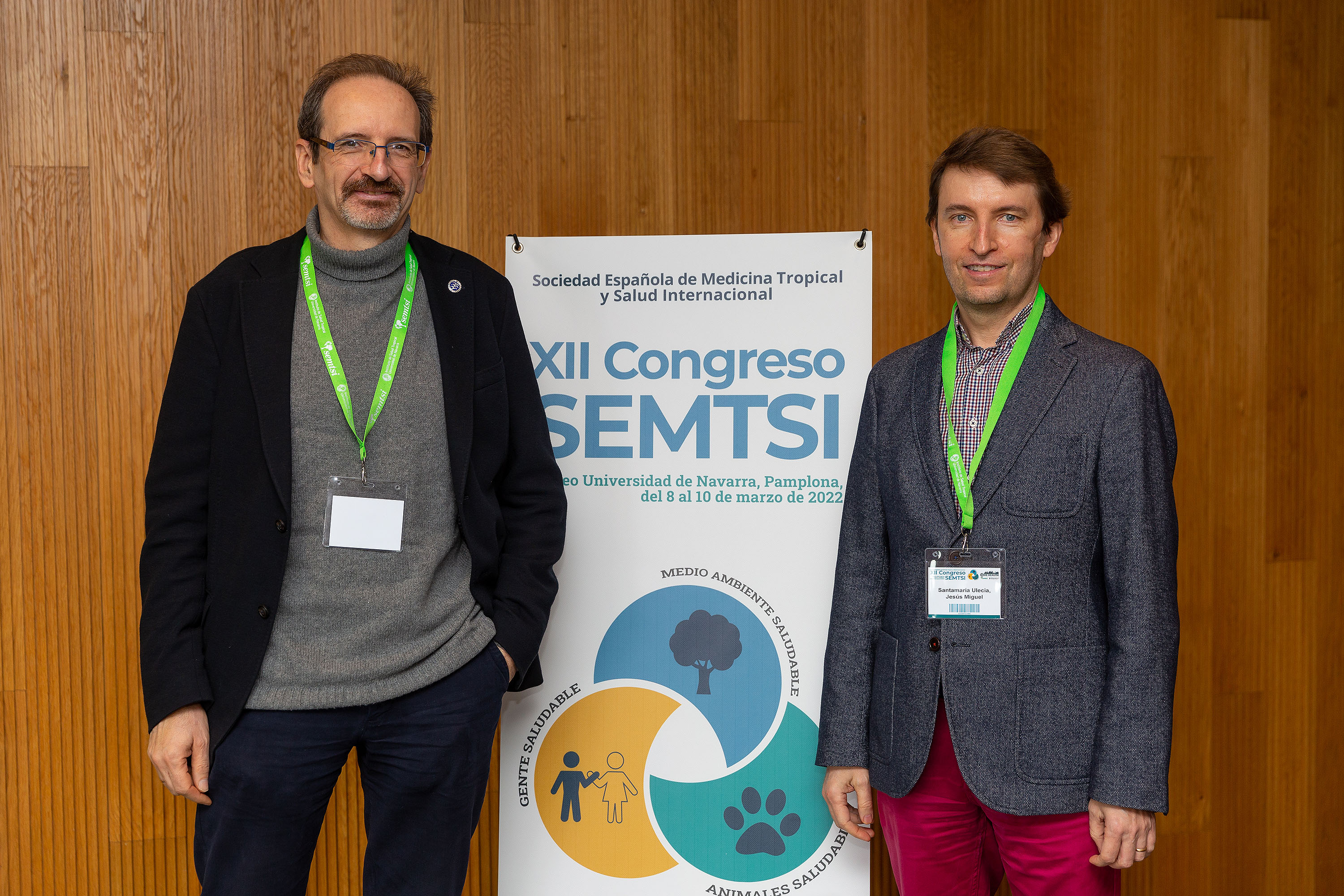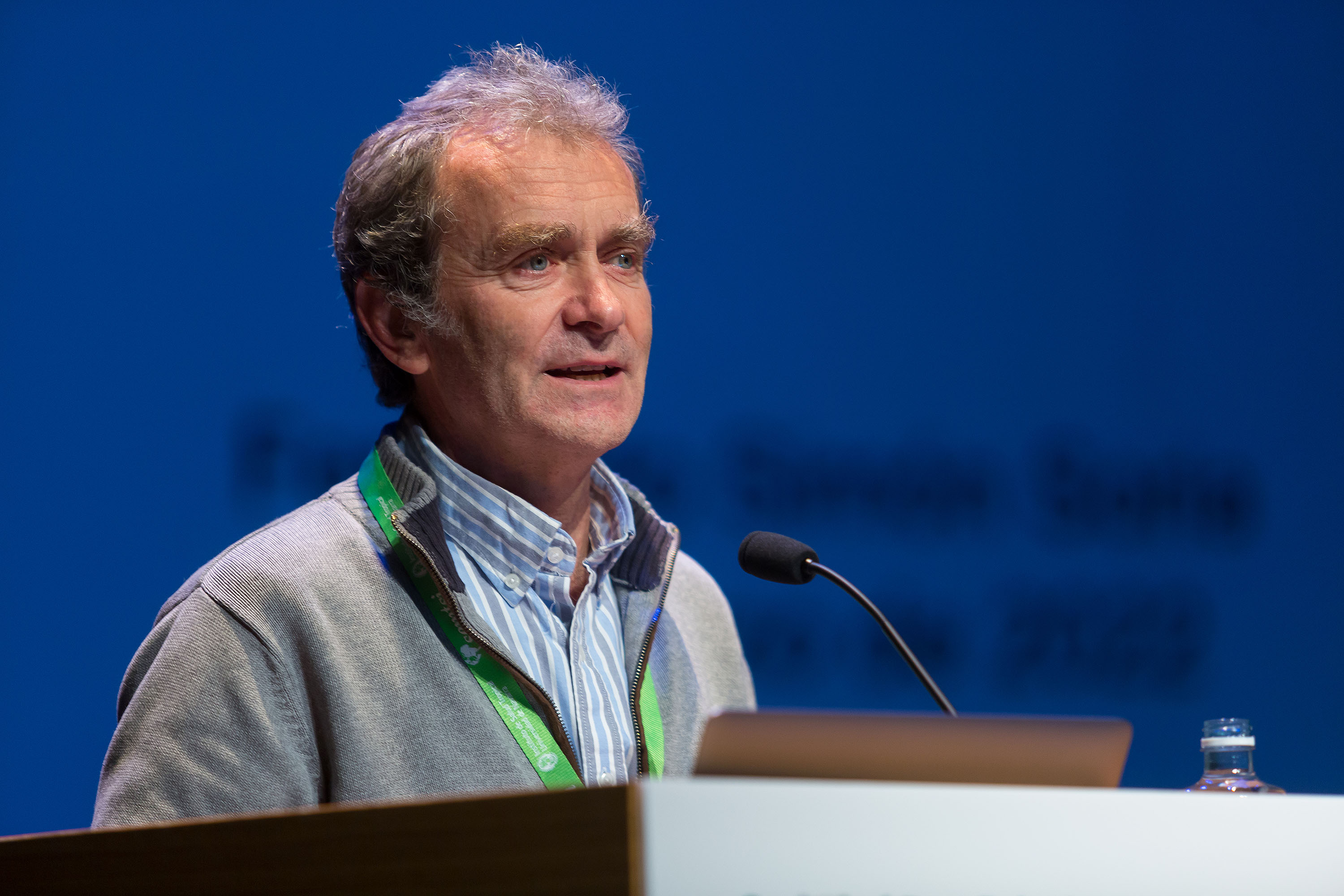news_istun_2021_04_21_vih_retroviral_response_vih_retroviral_response
The Institute of Tropical Health of the University of Navarra investigates the response of different HIV subtypes to antiretroviral treatment.
"A significant proportion of the population does not know how the virus is transmitted, they believe that it does not exist or that it is spread through witchcraft or curses," says Silvia Carlos, co-principal investigator of project OKAPI.

PhotoManuelCastells/Silvia Carlos.
23 | 04 | 2021
The high school of Tropical Health of the University of Navarra (ISTUN) investigates the response to antiretroviral treatment of the different subtypes of the AIDS virus in Sub-Saharan Africa. Today, 60% of the world's total new HIV infections occur in this region, which constitutes a pandemic that affects, depresses and impoverishes these already depleted areas.
The OKAPI study focuses on the Democratic Republic of Congo and has succeeded in analyzing blood samples from 363 people that are sent to the laboratory Microbiology Department at Clínica Universidad de Navarra for analysis. These samples are sent from the Monkole Hospital Center in Kinshasa. Dr. Gabriel Reina, co-principalresearcher of project, and his team are investigating which HIV subtypes cause the infection and how it could best be treated. It is also being studied and is one of the objectives of David Barquin 's doctoral thesis whether some strains have become resistant to the different existing treatments and need to be treated differently.
"The reason why there are so many cases has to do with sexual transmission and risky behaviors. Many common and normalized practices in the local population have a very high risk of contagion," explains the principal investigator of the study and professor at School of Medicine, Silvia Carlos.
Another of the main objectives of the research is to be able to properly inform people living in these populations. To this end, the 797 participants have been tested for HIV and information on knowledge and risk behaviors associated with HIV has been collected through surveys. With these data the participants are advised to be aware of the risks involved in such behaviors and to prevent them in an effective way. "A large part of the problem is the total lack of knowledge of HIV and the associated factors on the part of the population. A significant proportion of the population is completely unaware of how the virus is transmitted, even believing that it does not exist or that it is transmitted through witchcraft or curses," explains Silvia Carlos. "We also aim to combat the consequences suffered by those infected: violence, stigmatization and social exclusion".
As reported in a work recently published in the journal Scientific Reports, the researcher points out that the main obstacle of this study is the difficulty of retaining participants in the study. A large number of those interviewed at the first written request do not return to continue the study. After six months only 57% of the participants return and after one year only 27%. "This status makes it difficult for the study to develop in the most satisfactory way," he concludes. We have observed that there is a higher retention in the study among people who are studying, have daily/weekly access to the internet, have had previous HIV tests or intend to share the result HIV test with their partner. Taking into account these results we have to continue working to improve the quality of the HIV prevention programs of study and above all, to improve the health of the African population.





